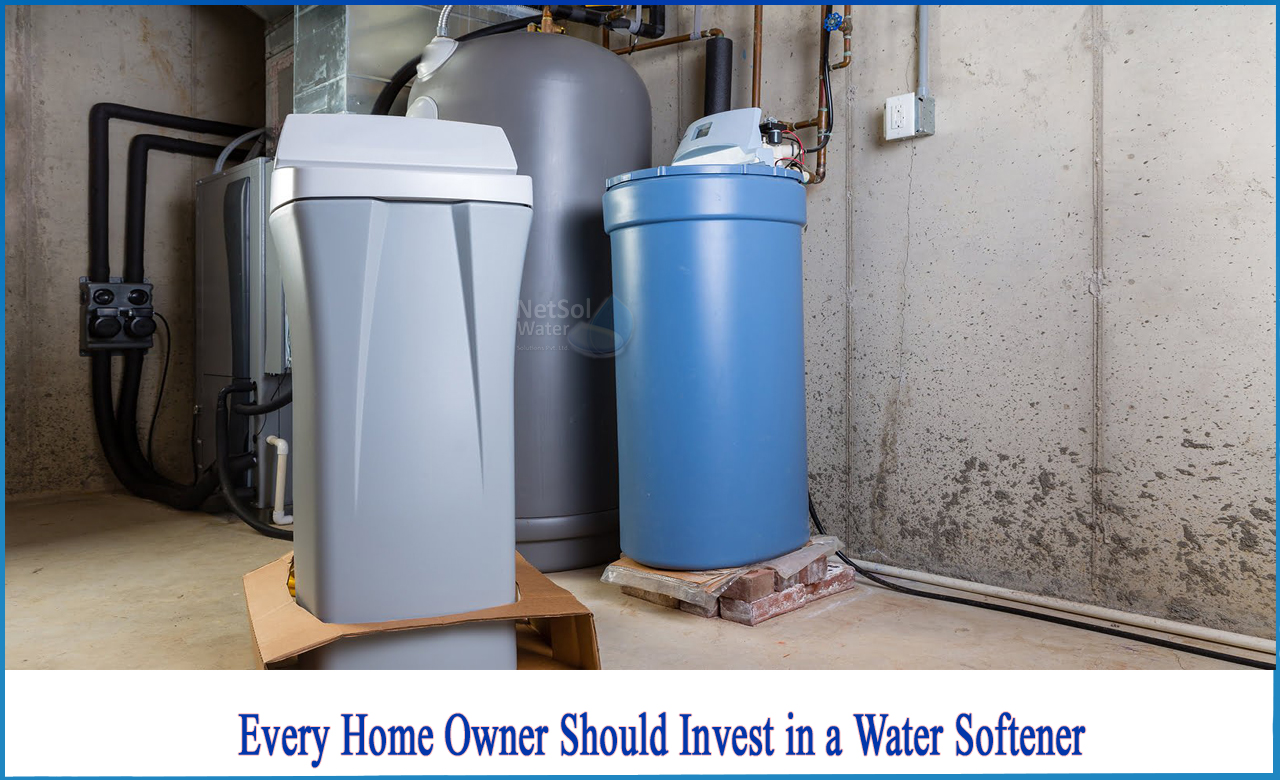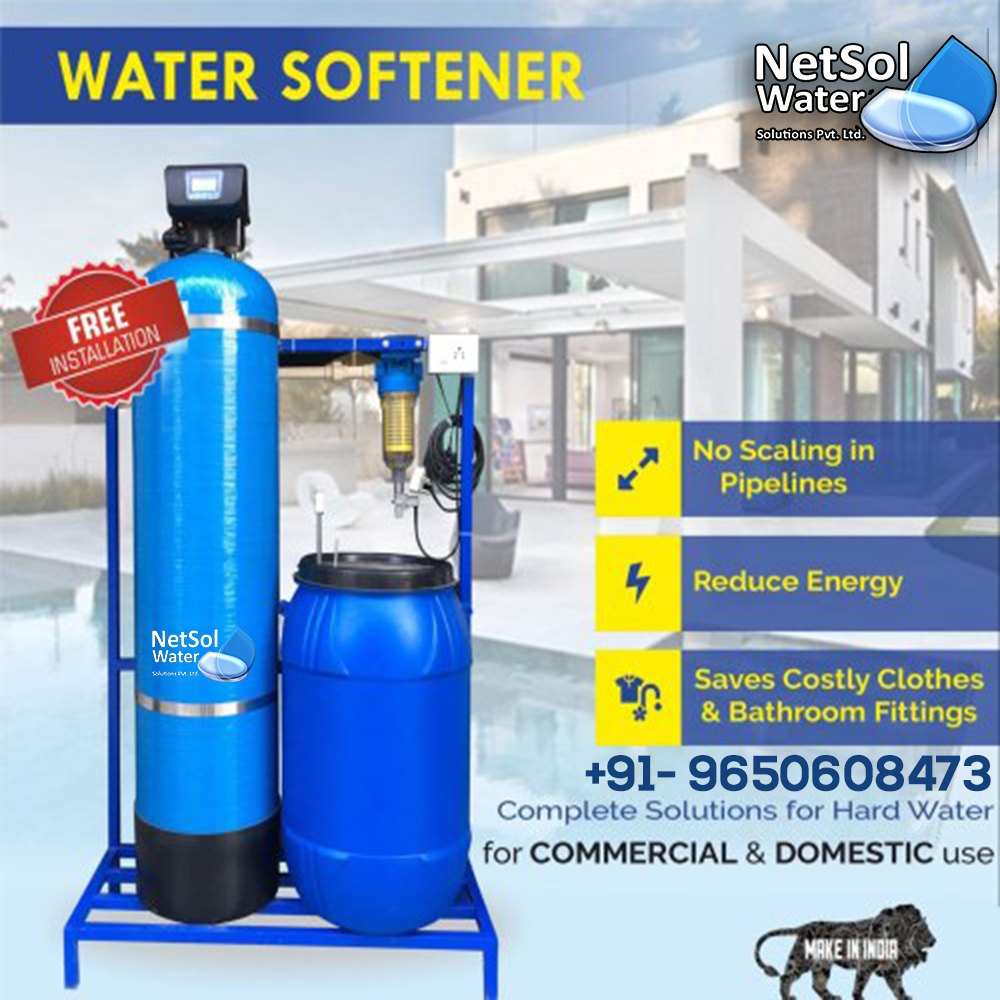Hard water is simply a way of life for many homeowners. But does it have to be that way?
There are numerous low-cost options available today for resolving hard water issues in your home. One of the most common is to install a water softening and purification system. The cost of the equipment and installation will, of course, necessitate a small initial investment.
Hard water contains high levels of calcium and magnesium ions, which can cause limescale and harm your home's internal heating and plumbing systems, as well as reduce the effectiveness of soaps and cleaning products. Soft water, on the other hand, does not contain these elements, and as a result, households with water softeners installed can save a significant amount of money throughout the year for a variety of reasons.
What are the advantages that water softener can bring to your home?
1. Save money on soap, laundry detergent, and other cleaning supplies.
Hard water contains magnesium and calcium ions, which make it difficult to create an effective lather with soap and other cleaning products, affecting the entire cleaning process, whether you're taking a shower, washing your car, or doing the laundry and dishes. Soft water is far more effective for washing because it has been treated to remove these impurities. For example, a study conducted by the Scientific Services Laboratory in New York discovered that you could achieve the same level of soil removal in soft water by using lower water temperatures and less detergent than when washing with hard water. A good wash will necessitate fewer cleaning agents.
2. Increase your heater's efficiency.
Hard water can wreak havoc on your heating system by causing scum and scale deposits, which can cause blockages and damage to your boiler. Scale acts as an additional layer of insulation, preventing heat from being transferred into the water. These deposits are known to drastically reduce your boiler's efficiency – sometimes by as much as 50%. Even a small deposit of 1.6mm could result in a heat efficiency loss of up to 12%! Soft water running through your system gradually dissolves scale, completely resolving the problem.
3. It can help you improve your skin and get rid of skin conditions.
Due to the excessive amount of soap and cleaning products required to create an effective lather for a thorough clean, hard water can aggravate eczema and other dry skin conditions.Hard water also causes soap scum to form as a result of the reaction between the soap and the minerals. Soap scum is another potential irritant, both when it comes into direct contact with a skin condition and when small particles are left on hard-washed clothing.
Furthermore, clothing washed in soft water often feels softer, which can reduce the abrasive feel of starchy clothing and, as a result, keep skin complaints at bay. According to a study conducted by the University of Nottingham, children who live in hard water areas are nearly 50% more likely to develop eczema than those who do not.
4. Never have a bad hair day again
Soft water is great for skin care, and a deep clean will make a noticeable difference in the vitality of your hair. Each hair is made up of millions of tiny little scales when magnified. Hard water causes these scales to protrude from the shaft, making your hair more prone to tangling and feeling rough. With softer water, there will be significantly less limescale deposits left in hair, and hair will feel much smoother as a result of less interaction between the minerals and the hair itself.
5. It is more suitable for cooking and making drinks.
Hard water is typically preferred for drinking. Its mineral content provides water with the closest thing to taste! Soft water, on the other hand, is generally thought to be superior for making drinks such as tea or cocktails. Soft water is a more effective solvent, as demonstrated by its use with soap, but it also applies to cooking and mixed drinks. Adding stock to soft water, for example, will greatly enhance the flavors and aromas.
6. Keep your appliances, such as dishwashers and washing machines, in good working order.
As previously stated, hard water can cause plumbing blockages due to the deposition of limescale. Soft water, on the other hand, can provide a long-term solution to these types of deposits. If a water softener is retrofitted to a property, the softer water will gradually dissolve limescaledeposits and eliminate the problem entirely.
7. Devote less time to cleaning.
When it comes to cleaning, most of us are used to putting in a little elbow grease. Soft water can sometimes make dirt removal easier by 50%, and it's great for rinsing because it doesn't leave a streaky residue. It is more difficult to create an effective lather to remove dirt and stains with hard water, and mineral deposits on smooth surfaces can produce a spotted appearance.
8. Laundry becomes brighter, and glasses and dishes regain their luster.
Typically, washing with hard water causes clothes to become dull and weathered, whites to turn grey, and colors to fade. Dishes and glassware will also lose their luster. Soft water, on the other hand, preserves the appearance of clothing and kitchenware. It's all due to soft water's ability to effectively mix with soap and detergents to provide a more thorough clean.
SAVE YOUR MONEY BY INVESTING IN A WATER SOFTENER!




